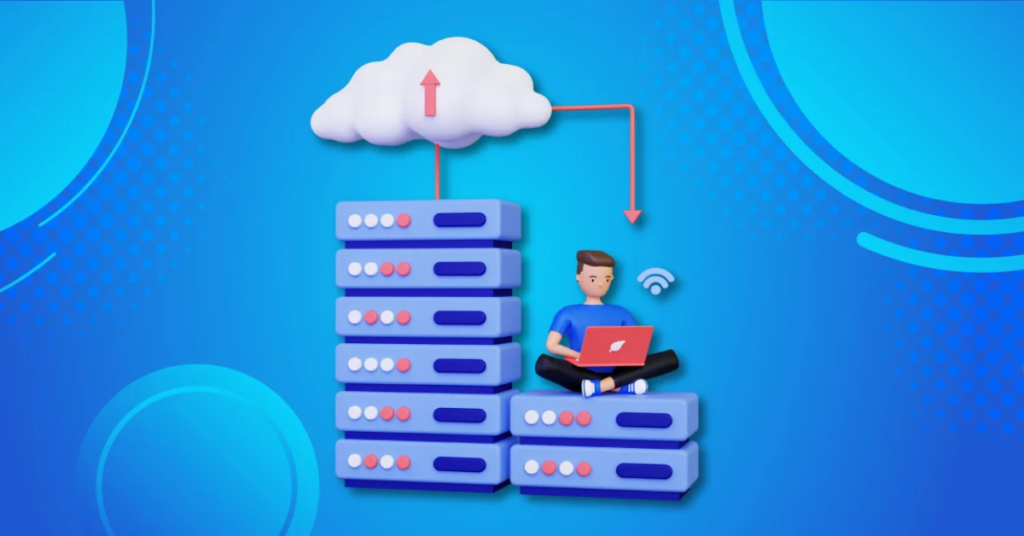Present-day cloud-first strategies have made most enterprises aware of cloud servers as virtualized computing resources that operate through internet connectivity. Businesses use Bare Metal servers as their preferred solution because performance and reliability and control requirements make these servers irreplaceable.
Bare metal servers act as the crucial component for running mission-critical applications while they gain popularity within modern cloud data centers. But what makes them different? High-demand computing environments strongly require these systems for what essential reasons? The following text explores Bare Metal as it stands in relation to the modern cloud infrastructure paradigm.
What Are Bare Metal Servers?
A Bare Metal server provides exclusive physical server solutions to individual customers. Bare metal servers operate on singular physical hardware by giving users an entire computer for their exclusive use independently of other shared virtual server operations.
Using a private villa rental service offers better performance than hotel accommodations. The physical server’s processor, memory and storage space together with the bandwidth remain dedicated strictly to a single user. The exclusive server access gives you exceptional security measures together with flexible performance at peak levels.
Bare Metal vs Cloud Servers: What’s the Difference?
Scalability and remote access features exist in both bare metal servers and cloud servers when viewed from the surface. The fundamental distinction emerges from the implementing concept of virtualization.
- Virtual machines known as cloud servers exist at the hypervisor layer. Cloud servers present good resources for common applications that scale effortlessly yet they experience resource allocation issues when multiple users share the same environment.
- Bare Metal, on the other hand, removes the virtualization layer entirely. This setup provides direct hardware access to users as it meets workload requirements for high IOPS rates combined with big memory space and minimal latency.
Companies now implement hybrid cloud frameworks which combine cloud flexibility with Bare Metal system performance as a core part of their enterprise cloud strategies.
Why Are Bare Metal Servers Gaining Popularity?
Bare metal servers have reemerged in the market through natural market forces. Businesses use machine learning along with AI and big data analytics together with gaming to stress their infrastructure systems to the maximum. Bare Metal solutions have become the most preferred choice because of three main reasons.
1. Performance Without Compromise
The exclusive resource usage allows your applications to function at their highest possible level which makes bare metal ideal for HPC and scientific simulations and rendering applications.
2. Complete Customization
The entire OS together with software stack and security protocols along with storage setup runs according to your precise specifications. Running applications with particular system requirements demands this level of customization.
3. Enhanced Security
Businesses involved in finance healthcare and defense operations specifically require complete isolation of their data. Bare metal servers offer both protection from the noisy neighbor issue and elevated compliance levels.
4. Predictable Costs
Bare metal hosting operates without elastic cloud pricing since users must pay set monthly fees for their services. Fixed monthly payments provide organizations with superior control of their budgets for their long-running workloads.
The Role of Bare Metal in Cloud Data Centers
You may ask yourself how these two systems can exist together because Bare Metal uses physical components while cloud operates virtually.
Contemporary cloud data centers now utilize bare metal servers because they meet the requirements of high-performance operations. Bare metal servers exist as a service which enables users to provision real hardware like they would provision virtual servers through fast deployment processes that consume minutes instead of traditional hours.
Enterprises are now redesigning their infrastructure architecture because of the combined physical performance capabilities with cloud-style flexibility options.
Bare Metal in the Enterprise Cloud Era
Enterprise cloud strategies in current times are founded on the combination of agility and power. The cloud flexibility is what businesses require yet they need full control and performance which bare metal servers offer.
The bare metal infrastructure establishes a fundamental base that enables businesses to operate enterprise solutions at scale with resilience during database management and Kubernetes cluster implementation and latency-sensitive application hosting.
Enterprise cloud providers include bare metal as an available service through which businesses can utilize private clouds and hybrid clouds or colocation services within public cloud platforms.
Use Cases of Bare Metal Servers
Providers use bare metal servers in these use cases:
- Bare metal servers optimize AI/ML operations through their combination of GPUs alongside high-speed CPUs.
- The performance characteristics of Gaming Servers include low latency paired with high throughput and specific dedicated capabilities.
- Financial Trading Platforms: Ultra-low latency and strict compliance.
- Media Rendering as well as Video Processing technologies require servers to handle extreme amounts of compute power in combination with significant memory needs.
- Organizations benefit from full resource access and control and security and compliance features in their private Cloud Infrastructure system.
Conclusion: Is Bare Metal the Future?
The cloud revolution in IT infrastructure required resolving key challenges regarding stable performance alongside data location matters and total cost management. Bare Metal solves the cloud infrastructure challenge as it combines cloud flexibility with hardware performance speed.
Bare metal servers will perform a fundamental task in developing next-gen enterprise cloud environments due to their rising significance alongside advanced cloud data centers.
For organizations reaching their maximum capacity of performance or security it is essential to evaluate Bare Metal’s singular capabilities.



